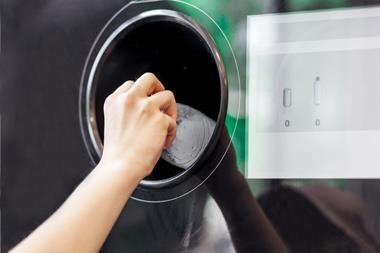Reflections on DRS implementation so far
By Edward Woodall, ACS government relations director 2023-07-12T09:23:00

Source: GettyImages-1205247477 (1)
The implementation of DRS has caused much confusion for retailers. ACS government relations director Edward Woodall shares his thoughts on the lessons learnt from DRS
ALREADY HAVE A REGISTERED USER ACCOUNT? PLEASE LOG IN HERE
To read the full story join the ConvenienceStore.co.uk community today!
Registration is quick and easy and provides access to:
- Unlimited ConvenienceStore.co.uk articles
- Our great range of newsletters
- Content you’ve saved for later via the ‘my library’ feature
And much more…
Related articles
More from Have Your Say
Unlimited Access + Newsletters
Register today to gain unlimited access to articles and to receive our great range of email newsletters.































